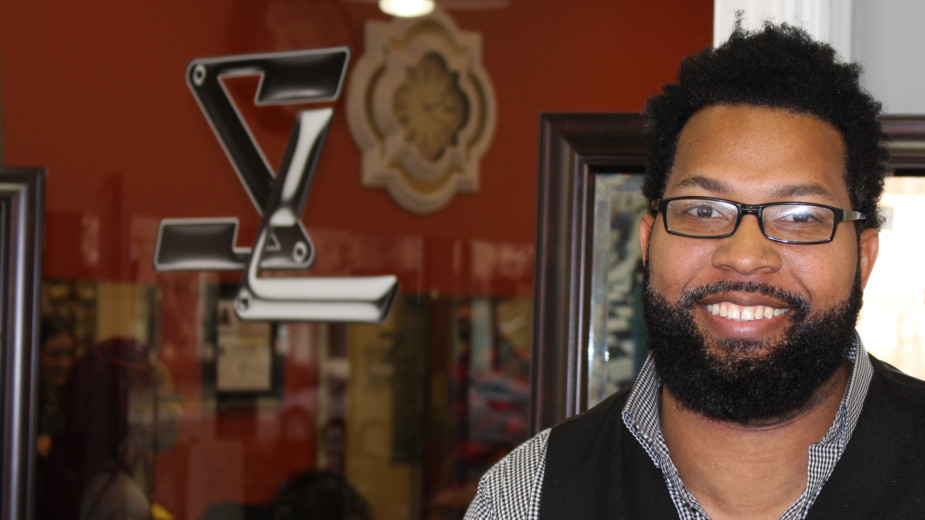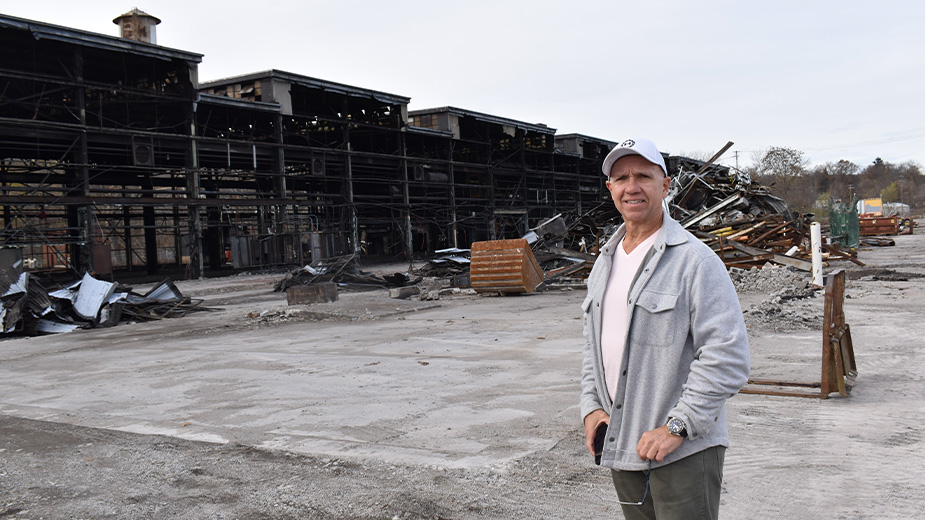Hurdles Remain High for Minority Entrepreneurs
YOUNGSTOWN, Ohio – The number of residents in the mostly white Mahoning Valley continues to shrink as the population of Blacks, Hispanics and Asians grows. Still, minority business enterprises have seen little progress in lowering the hurdles to success.
An analysis this year by Frank Akpadock, senior research associate, Regional Economic Development Initiative at Youngstown State University, found that in 2012, whites owned 84% of businesses in Mahoning County, blacks 11%, Hispanics/Latinos 3% and Asians 2%.
In the United States between 1997 and 2007, minority-owned small businesses – any business with fewer than 500 employees owned by someone who identifies his race as other than white – rose more than 25%, says the Brookings Institution, a Washington-based think tank.
Youngstown has become a city where minorities comprise the majority of the population. Akpadock’s study found that minorities owned 31% of all businesses within Youngstown in 2012.
Barriers remain for expanding minority business ownership, locally and nationally.
Jerome Franklin owns the Starting Lineup Barber and Beauty Shop in downtown Youngstown where 12 employees work in his 1,600-square-foot store.
Aside from a $4,198 wastewater grant from the city, Franklin built his business entirely on his own. Despite more than a decade of profits at two other barbershops where he worked, he couldn’t get a loan from his bank.
“I had a seven-year track record,” Franklin says. “Credit score was where it needed to be, but I was turned down for a loan. Everything I did, I did with cash on hand and credit cards. I had the credit and I had money saved up, wasn’t much, but I had to use it.”
While Franklin has seen his clientele and profits grow on the first floor of Realty Tower, obtaining financing reflects the hurdles other minority entrepreneurs face.
“If you can’t get a loan,” Franklin says, “how are you supposed to start a business? How are you supposed to have economic development?”
For those who lack Franklin’s resources, the barriers remain high, especially with issues related to education, networking and segregation, says Pat Kerrigan, executive director of the Oak Hill Collaborative on the south side of Youngstown.
Among its functions, The Oak Hill Collaborative is a small-business incubator. Kerrigan routinely deals with a diverse clientele who often lack any experience in business but are looking to become entrepreneurs.
“We provide a lot of uncategorized type of help: mentoring, facilitating, giving constructive criticism, introducing you to people, these types of things,” Kerrigan says. “You don’t need to have a full-time office yet. We can help with things like that, too.”
Staff at the collaborative explain the need for a business plan and how to write one. They also help individuals incorporate their business. “I continually stress to the them the importance of having a business plan,” Kerrigan says.
He and the collaborative also work with the Youngstown chapter of Score – its offices are at Youngstown State University – which provides counseling to new and established businesses.
“Many simply can’t get capital,” Kerrigan states.
“They maybe don’t have the traditional type of security measures, so the bank isn’t going to lend them money. They don’t have a home [to offer as collateral]. They don’t have family resources or cash to put down as down payments, and so they’re blocked from the market.”
Some individuals who come to Kerrigan not only lack access to the market, they lack the fundamental life and business skills necessary to become a successful business owner, Kerrigan says. This could encompass everything from understanding the importance of punctuality to dressing properly for a meeting.
“The life skills are really important and they’re directly related to the business skills,” he says, “and a lot of people don’t know that.”
He also points to an equally large and long-standing problem: segregation.
“You go to churches, barbershops, bars, any of those social things we do – even business groups – it’s so segregated,” Kerrigan says.
In 2013, Business Insider, using studies of U.S. Census data and its own population-weighted index, described the Youngstown-Warren-Boardman metropolitan area as exhibiting “very high” levels of segregation.
It’s part of a historic pattern that affects the ability of minority individuals to interact and network with business owners in the white community, Kerrigan points out.
The impact of segregation extends into the school system as well.
A 2016 report by the educational nonprofit EdBuild looked at school districts across the country to determine where high-poverty districts border districts with much lower rates of poverty.
This measure of income-based segregation listed Youngstown twice in the top 20 most-segregated borders. The majority-minority city school district (46% poverty rate) borders the majority-white Poland Local (7%) and Canfield (9%) districts, as EdBuild defines borders.
T. Sharon Woodberry, Youngstown director of economic planning and development, is familiar with the challenges minority entrepreneurs and small-business owners in the city contend with.
“Minority businesses and small businesses face the same challenges as any other startup and that’s access to capital,” Woodberry says.
For many, putting up their home as collateral is one way to get access to secure the capital they need. But the lack of collateral among minority groups poses a challenge, she says.
“A lot of our small-business initiatives and assistance fell under what we could call the Youngstown Initiative Program,” Woodberry says, “but because of declining tax revenues, we’ve not been able to fund a lot of the programs we had in the past.”
Today, the city allocates its federal funds to the Urban League, which serves minority businesses in the Mahoning Valley through the Minority Business Assistance Center in the Ohio One Building. The state funds the office.
“We tend to fund organizations through our block grant dollars now,” Woodberry says. “That’s where a lot of our opportunities come up to look at different agencies and provide funding to them in a third-party way.”
In 2016, Ohio bought a record $297.8 million in goods and services from minority-owned businesses the Ohio Development Services Agency reports. It was the second consecutive year the state met or exceeded its 15% set-aside goal for the Minority Business Enterprise Program.
“There can be many challenges small businesses face when starting a growing business,” says Jeffrey L. Johnson, chief of the Minority Business Development Division of the Ohio Development Services Agency, “and for minority businesses in particular it is access to capital and revenue opportunities. Through our partnership with the Minority Business Assistance Center at the Greater Warren-Youngstown Urban league, we have helped many Ohio minority-owned businesses get the resources they need to develop.”
Jonathan Bentley is executive director of human relations for the city of Youngstown and counselor for the Minority Business Assistance Center. Requests for financial help are among the most common he receives, Bentley says.
“It all goes back to financing,” he says. “Even issues in a person’s credit record from years ago can affect their ability to get financing.”
Until recently, the Youngstown Neighborhood Development Corp. extended microloans to small businesses, which included some minority businesses, including KBC Kidz, a Youngstown-based party planning company. That’s something Bentley would like to offer.
“One of the initiatives from our office that we are still working on is having our own microloan program,” Bentley says.
For minority-owned businesses that have been in a business a year, or for those with at least one year’s working experience who hold a certification in a vocation, Bentley can help them become a certified Minority Business Enterprise, or MBE, which allows businesses to compete for state contracts set aside for minorities.
“Say you have a project downtown that has state funding,” Bentley says, “and you have a general contractor who won that bid. The [contractor is] required to hit that 15% set aside of subcontractors, if they are needed.”
The certified clients run from contractors and demolition companies to barbers and entertainers.
“We have a woman that owns an adult daycare, Perea’s Senior Center, she got that launched off the ground and it’s over on the West Side,” Bentley says.
He points to the recent successes, including the pending relocation of 2Deep Entertainment, a popular live entertainment company, from Boardman to downtown Youngstown.
“That’s one of those businesses that actually brings money in from outside the state,” Bentley says.
The Mahoning Valley Economic Development Corp. offers programs to help businesses in the Valley and western Pennsylvania, including loans and a technical assistance program that helps businesses become suppliers to the federal, state and local governments.
CPA Jerry Sutton has dealt with numerous small businesses in his quarter-century career. He once taught classes on running a minority business for the Urban League and he estimates that about half of his clients are a minority.
“[Minorities] have a lot of issues with capitalization,” Sutton says. “The most telling thing is when I ask someone how much money they have in reserve. I hate to tell people that their ideas that they dream about won’t work because they come in undercapitalized.
“But I’ve always had a passion to get out and help the community, especially ours,” he says. “There really aren’t a lot of black professionals that can sit back and tell these guys how to plan their taxes, how to do their returns and how to estimate their tax liability.”
Despite many obstacles, Sutton sees hope for the next generation of minority-business owners.
“I’m seeing a lot of our kids going out on their own,” he says. “It used to be in Youngstown that the only businesses we had were funeral homes, barbecue spots and a few professionals. Now you have a multitude of young people going into different businesses. And when you sit down and talk to them, you realize that they know what they’re doing.”
Pictured: Despite a decade of profits at two other barbershops, The Starting Lineup Owner Jerome Franklin was unable to get financing to open a shop in downtown Youngstown.
Copyright 2024 The Business Journal, Youngstown, Ohio.



